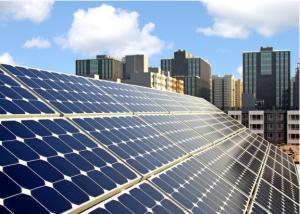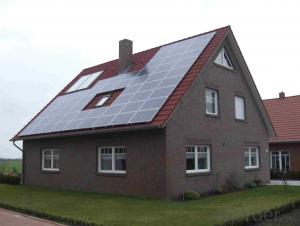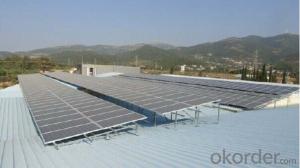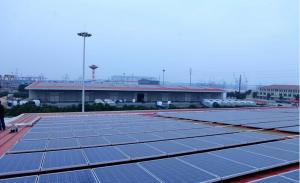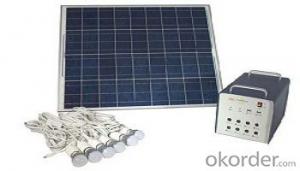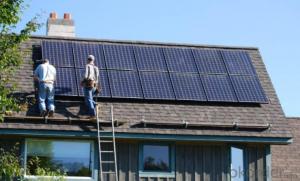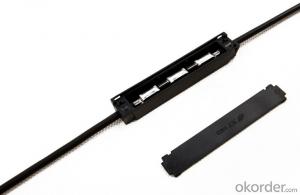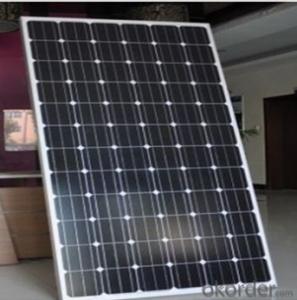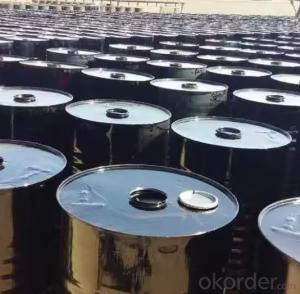Complete Solar System for Home Solar Panel System Home 5KW
- Loading Port:
- Guangzhou
- Payment Terms:
- TT or LC
- Min Order Qty:
- 10 set
- Supply Capability:
- 100000 set/month
OKorder Service Pledge
OKorder Financial Service
You Might Also Like
Complete Solar System for Home Solar Panel System Home 5kw
Features of Complete Solar System
Solar module:solar battery module(also called photovoltaic battery module)in series or in parallel according to the system requirements,the solar energy will change into electrical energy in the light of the sun and then output,it is the core component of solar photovoltaic system.
Controller: solar power controller is an important part of the solar power system, System of charging and discharging and load work automatically by its intelligent control and protection. Its performance directly affects the reliability of the system. Especially the battery life, overcharge or over discharge will be cause damage and even lethal damage for the battery.
Inverter: in solar photovoltaic power supply system, if it has the AC load, it is necessary to use the devices of the inverter. The direct current generated by solar modules or the battery release of DC into AC for load.
Battery:Stored up the electricity produced by the solar cell module produce,When illumination is insufficient or night or load demand is greater than the power produced by the solar cell module.Stored energy will be released in order to meet the load demand of energy,It is the solar energy photovoltaic system energy storage unit.Currently solar pv system commonly used is lead acid battery,For higher requirements of the system,Usually adopt deep discharge vrla battery ,deep discharge suction fluid type lead-acid battery,etc
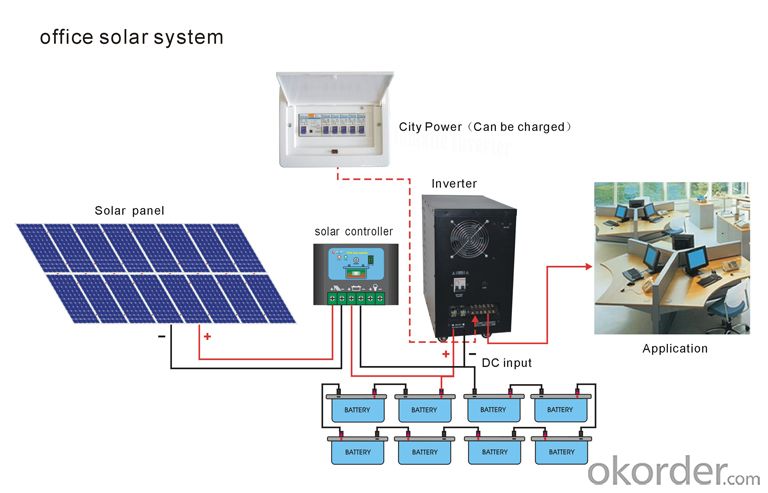
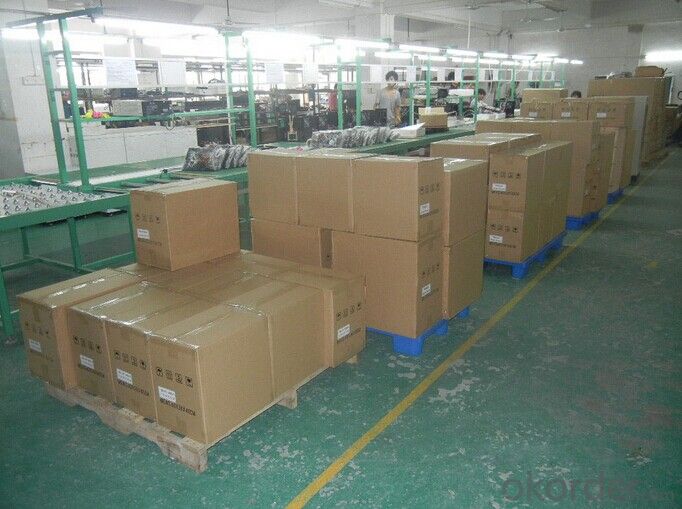
Product Parameter
Model XD- | TNY50112-10 | TNY70112-50 | TNY10224-50 | TNY20248-40 | TNY50296-50 | |||
Solar Energy Module | Type | Monocrystalline silicon A level | ||||||
Power | 100W | 500W | 1100W | 1800W | 4400W | |||
Daily Power generation | 0.5KWH | 2.5KWH | 5.5KWH | 9KWH | 22KWH | |||
Size(mm) | 1160×660×35×1 | 1250*660*35*4 | 1360*900*40*6 | 1620*990*40*8 | 1955*990*45*16 | |||
PV Controller | Control mode | Direct charge/PWM/MPPT | ||||||
Charge current | 10A | 50A | 50A | 40A | 50A | |||
Rated charging voltage | 12VDC | 12VDC | 24VDC | 48VDC | 96VDC | |||
Compulsive charging voltage | 14.8V | 29.6V | 59.2V | 118.4V | ||||
Balanced charging voltage | 14.4V | 28.8V | 57.6V | 115.2V | ||||
Floating charging voltage | 13.8V | 27.6V | 55.2V | 110.4V | ||||
Recovery charging voltage | 13.3 | 26.6V | 53.2V | 106.4V | ||||
Battery overvoltage protection/recovery | 16.5V/15V | 33V/30V | 66V/60V | 132V/120V | ||||
Protection function | Reverse connection, short circuit, overcharge, anti charge protection | |||||||
Display | LED | |||||||
PV Inverter | Rated Capacity | 500W | 700W | 1000W | 2000W | 5000W | ||
DC voltage | 12V | 24V | 48V | 96V | ||||
Undervoltage protection | 10.5V | 21V | 42V | 84V | ||||
Inverter structure | Low frequency structure | |||||||
Mains input | 75VAC-125VAC or 145VAC-275VAC | |||||||
Inverter output | 110VAC+/-2% or 220VAC+/-2% | |||||||
Mains input charging current | 10A | |||||||
Working way | Mains priority/solar power priority (optional) | |||||||
Conversion time | ≤4ms | |||||||
Overload capacity | Overload 110% 30 seconds the machine automatically shut down; overload shutdown 120% 2 seconds; mains mode overload do not shutdown | |||||||
Conversion efficiency | ≥80% | |||||||
Output waveform | Pure sine wave | |||||||
Work environment | Temperature0-40℃,Humidity10-90% | |||||||
Cooling mode | Forced air cooling | |||||||
Protection function | Mains over / under-voltage, direct current is too high / undervoltage, the inverter output short circuit | |||||||
Display | LCD | |||||||
Output waveform distortion | ≤±0.3% | |||||||
Input and output frequency | The same with power system | |||||||
Battery | Battery Type | Deep cycle maintenance-free lead-acid battery | ||||||
Battery capacity | 100AH/12V×1 | 200AH/12V×1 | 100AH/12V×2 | 200AH/12V×4 | 100AH/12V×8 | |||
Discharge time(full Load calculation) | 1.3H | 1.8H | 1.3H | 2.8H | 1.1H | |||
Machine specifications | Size(mm) | 465×245×465 | 580×280×470 | 580×300×610 | 600×540×940 | |||
Weight | 48KG | 81KG | 7KG | 302KG | 332KG | |||
Remarks | Specification for reference.Subject to change without prior notice | |||||||
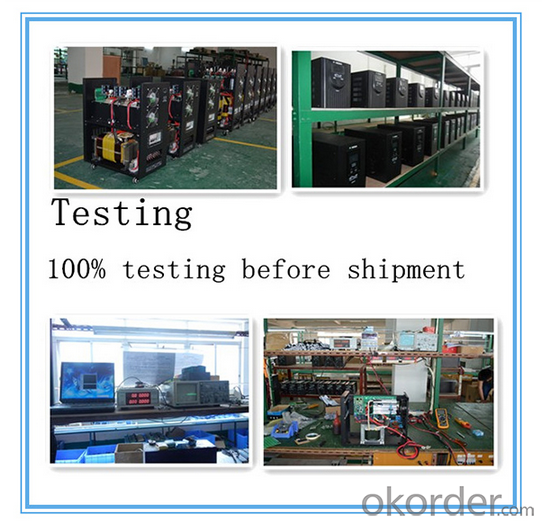
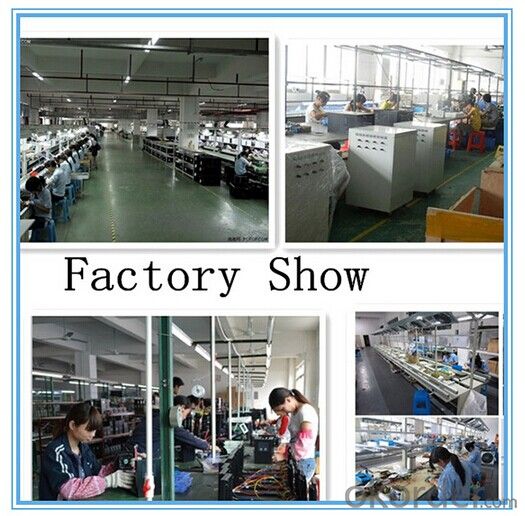
- Q:Can solar energy systems be used in powering recycling plants or waste management facilities?
- Certainly, recycling plants and waste management facilities can make great use of solar energy systems. These systems harness the sun's power to produce electricity, which can then be utilized to operate various equipment and machinery within these facilities. It is worth noting that these facilities require a significant amount of energy to power their operations, including machines for sorting and processing, conveyor belts, and other equipment. By installing solar panels on the roofs or in close proximity to these facilities, they can generate clean and renewable electricity, thus reducing their dependence on conventional energy sources. Solar energy systems offer numerous advantages for recycling plants and waste management facilities. Firstly, they provide a reliable and consistent source of energy, as the sun is readily available in most regions throughout the year. In contrast to fossil fuels or other non-renewable sources, solar energy systems do not deplete natural resources or contribute to greenhouse gas emissions, making them environmentally friendly. This aligns perfectly with the sustainability goals of recycling plants and waste management facilities, which aim to minimize the environmental impact of waste management processes. Moreover, solar energy systems can help these facilities save on energy costs. Once the initial investment in solar panels is made, the ongoing operational expenses are relatively low. Additionally, certain regions offer incentives and financial support for the installation of solar energy systems, further offsetting the initial investment and making it financially attractive. Furthermore, recycling plants and waste management facilities often possess ample surface areas suitable for solar panel installations, such as rooftops or open fields. This facilitates the installation of a sufficient number of solar panels to meet the energy demands of these facilities. In some cases, surplus energy generated by the solar panels can even be fed back into the electrical grid, enabling the facilities to generate revenue from the excess electricity. In conclusion, solar energy systems can effectively power recycling plants and waste management facilities. They present a sustainable and cost-effective solution, reducing dependence on traditional energy sources while aiding these facilities in achieving their environmental objectives.
- Q:Can solar energy systems be used for powering air conditioning systems?
- Yes, solar energy systems can be used for powering air conditioning systems. Solar-powered air conditioning systems, also known as solar air conditioners, utilize the sun's energy to power the cooling process. These systems typically consist of solar panels that capture sunlight and convert it into electricity, which is then used to run the air conditioning unit. By using solar energy, these systems offer a sustainable and environmentally-friendly alternative to conventional air conditioning systems that rely on fossil fuels. Solar air conditioners are particularly beneficial in areas with abundant sunlight, as they can significantly reduce energy costs and dependency on the electrical grid.
- Q:How do solar energy systems impact grid stability?
- Solar energy systems can have both positive and negative impacts on grid stability. On one hand, solar energy systems can help improve grid stability by reducing the overall demand for electricity during peak times. This is because solar energy production typically aligns with peak electricity demand, which helps balance the grid and reduces the need to rely on other power sources. On the other hand, the intermittent nature of solar power can pose challenges to grid stability. Sudden fluctuations in solar energy production due to weather conditions can create voltage and frequency variations, which can affect the stability of the grid. However, with proper integration and management techniques, such as energy storage systems and advanced grid control technologies, the negative impacts of solar energy systems on grid stability can be minimized.
- Q:Can solar energy systems be used in powering scientific research vessels or marine laboratories?
- Yes, solar energy systems can definitely be used to power scientific research vessels or marine laboratories. Solar energy is a renewable and sustainable source of power that can be harnessed using photovoltaic panels or solar thermal collectors. Research vessels and marine laboratories require a significant amount of energy to carry out their operations, which often includes scientific experiments, data collection, and analysis. These activities typically involve equipment such as computers, sensors, and lab instruments that require a constant and reliable source of power. Solar energy systems can be installed on these vessels or laboratories to provide a clean and efficient source of electricity. The photovoltaic panels convert sunlight into electricity, which can then be used to power the various equipment and systems onboard. Additionally, excess energy produced by the solar panels can be stored in batteries for use during periods of low sunlight or at night. Utilizing solar energy in these marine environments offers several advantages. First, it reduces the dependence on fossil fuels and minimizes the carbon footprint associated with traditional power generation methods. This is especially important in the context of scientific research, as it aligns with the principles of environmental sustainability and conservation. Second, solar energy systems provide a reliable and independent source of power. Research vessels and marine laboratories often operate in remote or isolated locations where access to traditional power grids may be limited or non-existent. By utilizing solar energy, these vessels and facilities can generate their own electricity and continue their research activities without relying on external power sources. Finally, solar energy systems are low-maintenance and have a long lifespan. Once installed, they require minimal upkeep and can withstand the harsh marine environment. This makes them well-suited for use in research vessels or marine laboratories, where downtime and maintenance issues can be disruptive to ongoing scientific projects. In conclusion, solar energy systems can certainly be used to power scientific research vessels or marine laboratories. They offer a sustainable, reliable, and independent source of electricity, reducing the carbon footprint and ensuring uninterrupted research activities even in remote locations.
- Q:Can a solar energy system be installed on a shopping center or mall?
- Certainly, a shopping center or mall can have a solar energy system installed. In fact, numerous shopping centers and malls worldwide are currently adopting solar panels to produce electricity. The ample rooftop spaces found in these establishments make them an ideal choice for solar installations. By harnessing the sun's power, shopping centers and malls can greatly diminish their reliance on conventional energy sources, decrease their carbon footprint, and lower their energy expenses. Additionally, solar energy systems can also be integrated into parking lots or carports, offering shade for vehicles while simultaneously generating clean energy. All in all, the installation of a solar energy system on a shopping center or mall presents a viable and sustainable solution for fulfilling their energy requirements.
- Q:Can solar energy systems be installed on camping sites?
- Yes, solar energy systems can be installed on camping sites. In fact, solar panels are commonly used to power camping equipment such as lights, portable chargers, and even small appliances. They are a sustainable and convenient solution for accessing electricity in remote locations without the need for traditional power sources.
- Q:Can solar energy systems be used in off-grid locations?
- Yes, solar energy systems can be used in off-grid locations. Off-grid locations refer to areas that are not connected to the main power grid. Solar energy systems, such as solar panels, can generate electricity by harnessing the sun's energy and store it in batteries or use it directly for various applications. This makes solar energy a reliable and sustainable solution for powering off-grid locations, providing a clean and renewable source of energy.
- Q:How much maintenance do solar energy systems require?
- Solar energy systems generally require minimal maintenance. They are designed to be durable and require very little attention over their lifespan. Routine maintenance includes occasional cleaning of the panels to remove dust or debris, checking the system's performance, and inspecting for any potential issues.
- Q:How do solar energy systems impact local wildlife?
- Solar energy systems can have both positive and negative impacts on local wildlife. On the positive side, these systems can provide habitat for certain species, such as birds or pollinators, by creating shade and shelter. Additionally, solar panel arrays can be designed to minimize ground disturbance and preserve existing vegetation, benefiting local flora and fauna. However, there are also potential negative effects, such as the risk of bird collisions with solar panels or the displacement of certain species due to changes in habitat. Proper planning, including strategic panel placement and wildlife-friendly landscaping, can help mitigate these impacts and ensure coexistence between solar energy systems and local wildlife.
- Q:Can solar energy systems be used for powering space exploration missions?
- Solar energy systems have the capability to power space exploration missions. In space, solar energy is a clean and renewable power source that is abundant. It is already being utilized for various space missions, including the International Space Station (ISS), Mars rovers, and satellites. Photovoltaic (PV) cells, also known as solar panels, convert sunlight into electricity. They are lightweight, compact, and easily integrated into spacecraft design. Solar panels are particularly beneficial for missions near the Sun or in well-lit areas of space, as they can provide a consistent and dependable power source. The ISS, for instance, heavily relies on solar power. It is equipped with large solar arrays that capture sunlight and generate electricity to meet the crew's energy needs and power various onboard systems. Mars rovers like Curiosity and Perseverance also employ solar panels to operate on the red planet. Solar energy systems offer several advantages for space exploration missions. Firstly, they eliminate the need for bulky and limited fuel sources such as batteries or radioactive materials, reducing mission weight and costs. Secondly, solar energy systems require minimal maintenance, providing a long-lasting and reliable power source. Additionally, solar power is environmentally friendly, emitting no pollutants or emissions during operation. However, there are limitations to using solar energy in space exploration. For missions that venture far from the Sun or operate in areas with limited sunlight, alternative power sources like nuclear energy or fuel cells may be necessary. Additionally, solar panels are vulnerable to damage from micrometeoroids, radiation, and other space debris, necessitating protective measures and backup systems. In conclusion, solar energy systems have demonstrated their viability and efficiency in powering space exploration missions. Their ability to convert sunlight into electricity, combined with their lightweight and compact design, make them an ideal choice for providing sustainable and dependable power in space.
1. Manufacturer Overview |
|
|---|---|
| Location | |
| Year Established | |
| Annual Output Value | |
| Main Markets | |
| Company Certifications | |
2. Manufacturer Certificates |
|
|---|---|
| a) Certification Name | |
| Range | |
| Reference | |
| Validity Period | |
3. Manufacturer Capability |
|
|---|---|
| a)Trade Capacity | |
| Nearest Port | |
| Export Percentage | |
| No.of Employees in Trade Department | |
| Language Spoken: | |
| b)Factory Information | |
| Factory Size: | |
| No. of Production Lines | |
| Contract Manufacturing | |
| Product Price Range | |
Send your message to us
Complete Solar System for Home Solar Panel System Home 5KW
- Loading Port:
- Guangzhou
- Payment Terms:
- TT or LC
- Min Order Qty:
- 10 set
- Supply Capability:
- 100000 set/month
OKorder Service Pledge
OKorder Financial Service
Similar products
New products
Hot products
Hot Searches
Related keywords

